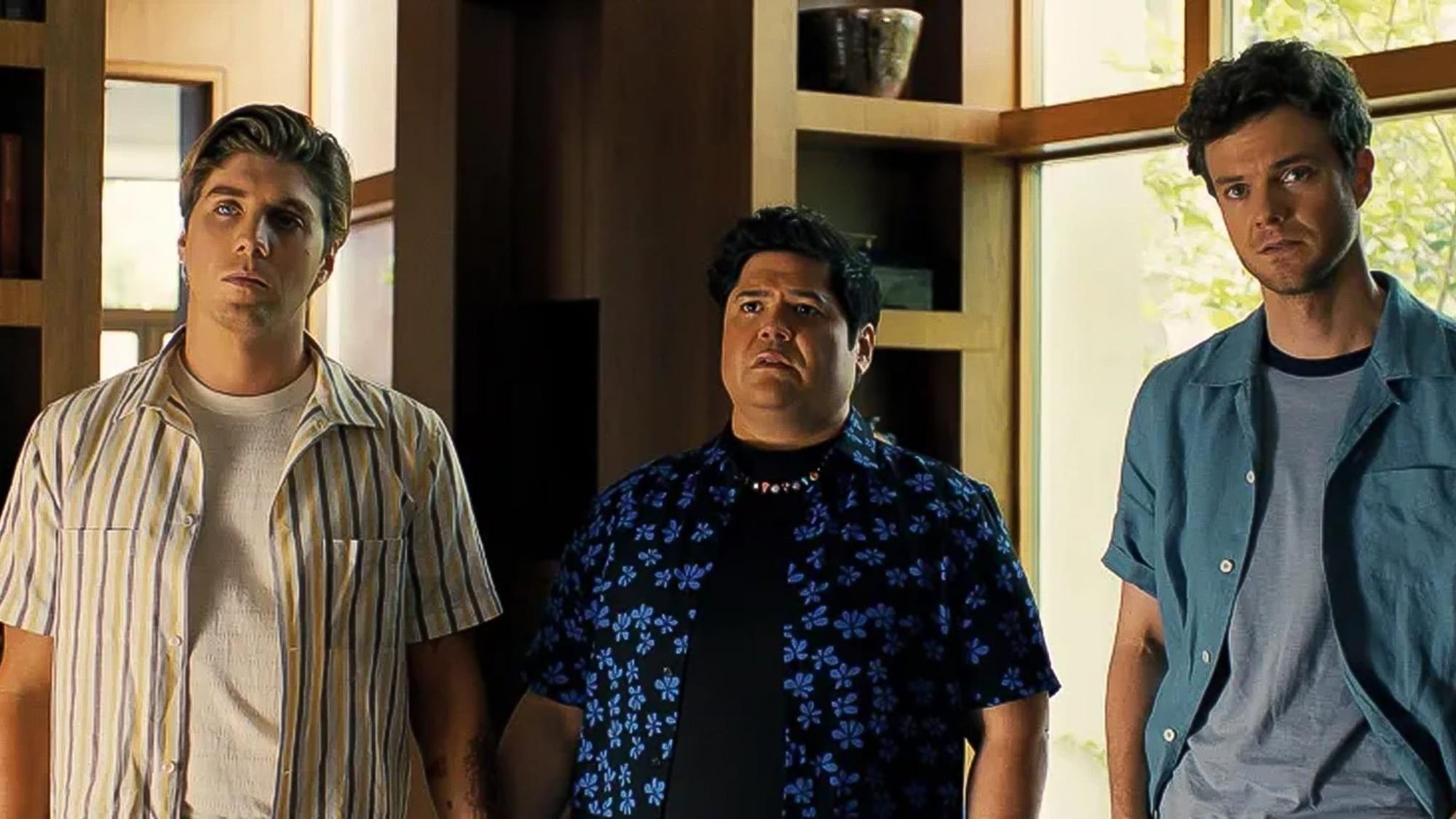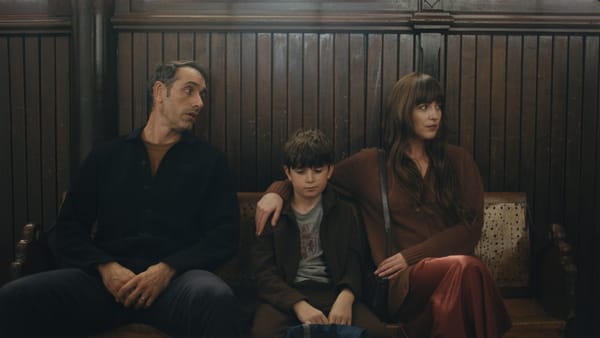'Companion': A Tense, Brutal, and Alarmingly Timely Thriller

A great thriller can't skimp on these few essentials: compelling characters, escalating stakes, surprise twists, and unrelenting suspense.
Companion delivers all of that, and then some.
Drew Hancock’s feature debut is one of the most confident, propulsive, and deceptively sharp genre films of the year so far. On the surface, it’s a tight, brutal comedic thriller that keeps you engaged from start to finish. But underneath, it’s a sly critiques of big tech, AI, and male entitlement.
And yet, crucially, it never feels like a “message movie.”
Hancock, working with Barbarian director Zach Cregger as producer, crafts something dark, unsettling, and super fun. The film's social commentary is woven seamlessly into the story—it’s never overbearing, never preachy, but always there, giving Companion a surprising level of thematic depth.
At first glance, Companion might look like a familiar setup: a young couple, Josh (Jack Quaid) and Iris (Sophie Thatcher), head to a remote cabin with friends for a getaway. Then, chaos. Bloodshed. Twists. A survival thriller that keeps you on edge.

But Companion is far more subversive than that. What starts as a quirky thriller setup quickly morphs into something much darker, exposing the deep rot at the core of a very specific kind of man and the results-obsessed, male-dominated tech industry.
Minor spoilers ahead (but nothing that’s not in the trailer): Iris isn’t just Josh’s girlfriend. She’s his made-to-order ego stroker. A manufactured, AI-enhanced robot. She looks exactly how he wants, speaks in a voice calibrated to his preferences, and exists to make his incel-adjacent ass feel desired, adored, and superior.
With this revelation, Companion becomes a thriller critiquing big tech, AI, and people who use these innovations for selfish power plays, namely self-serving, misogynistic young men. As big tech and AI rapidly transform society, their development remains overwhelmingly male dominated, built to reflect male perspectives, priorities, and desires. Companion doesn’t just acknowledge this—it makes it the foundation of its story.
The film taps into some of the most pressing anxieties of the moment: the commodification of young women's bodies, the rise of AI-generated relationships, and the increasingly normalized misogyny taking over the highest branches of corporate and governmental leadership. Beneath its gripping thriller framework, Companion becomes a razor-sharp dissection of tech-aided power imbalances and the ease with which reprehensible, stunted men rationalize their worst impulses in the pursuit of power.
Fittingly, Companion works in large part thanks to a talented young woman, Sophie Thatcher. She’s already made a strong mark in genre film and TV (Yellowjackets, Heretic), but this feels like her real breakout. Thatcher’s performance here is extraordinary, shifting seamlessly from programmed devotion to something much more complex, dangerous, and unpredictable.

As the plot unfolds and Iris begins to take control of her own destiny, Thatcher makes Iris feel like someone actively evolving, learning, and adapting. Watching her become self-aware and outgrow her programming is one of the most rewarding aspects of the film.
Jack Quaid continues his streak of playing guys who seem fine until you look a little closer. His Josh is the perfect mix of faux-sweet and subtly sinister, a man who genuinely believes he’s the good guy while doing increasingly reprehensible things. I feel like Quaid can play this character in his sleep at this point, and that’s not a criticism.
The supporting cast is stacked, too. Lukas Gage and Harvey Guillén are hilarious, and Gage, in particular, gets a lot to do as the film barrels toward its climax.
Hancock’s script is funny, and genuinely unsettling, balancing tension with dark humor in a way that never undercuts the stakes. He directs with the same confidence, keeping the film moving at a quick pace while allowing space for its themes to breathe.

Are there any issues with the film? Not many, but there are a few wobbly moments near the third act. As it moves into its climax, a few of the big reveals feel a little too messy. The “grand plan” that Josh and his friend concoct feels more illogical the more you think about it. It’s a minor speed bump, though, because the film is so confidently made that you’re already too invested to care. Besides, the messiness of Companion is part of its charm.
I’ve seen some critics argue that Companion only scratches the surface of its themes, that it doesn’t go deep enough into its social critiques. I don’t agree. It communicates its ideas in the language of a lean, sharp, and wildly entertaining thriller. It doesn’t have to spell everything out. The point lands, because the story is told so well.
If you want to see a film that taps into the anxieties of right now without ever losing its sense of fun—Companion is the movie for you.
Go see it.
Hey, here's my YouTube review of Companion:
Check out Glitch Film on:
📺 YouTube
🦋 BlueSky





